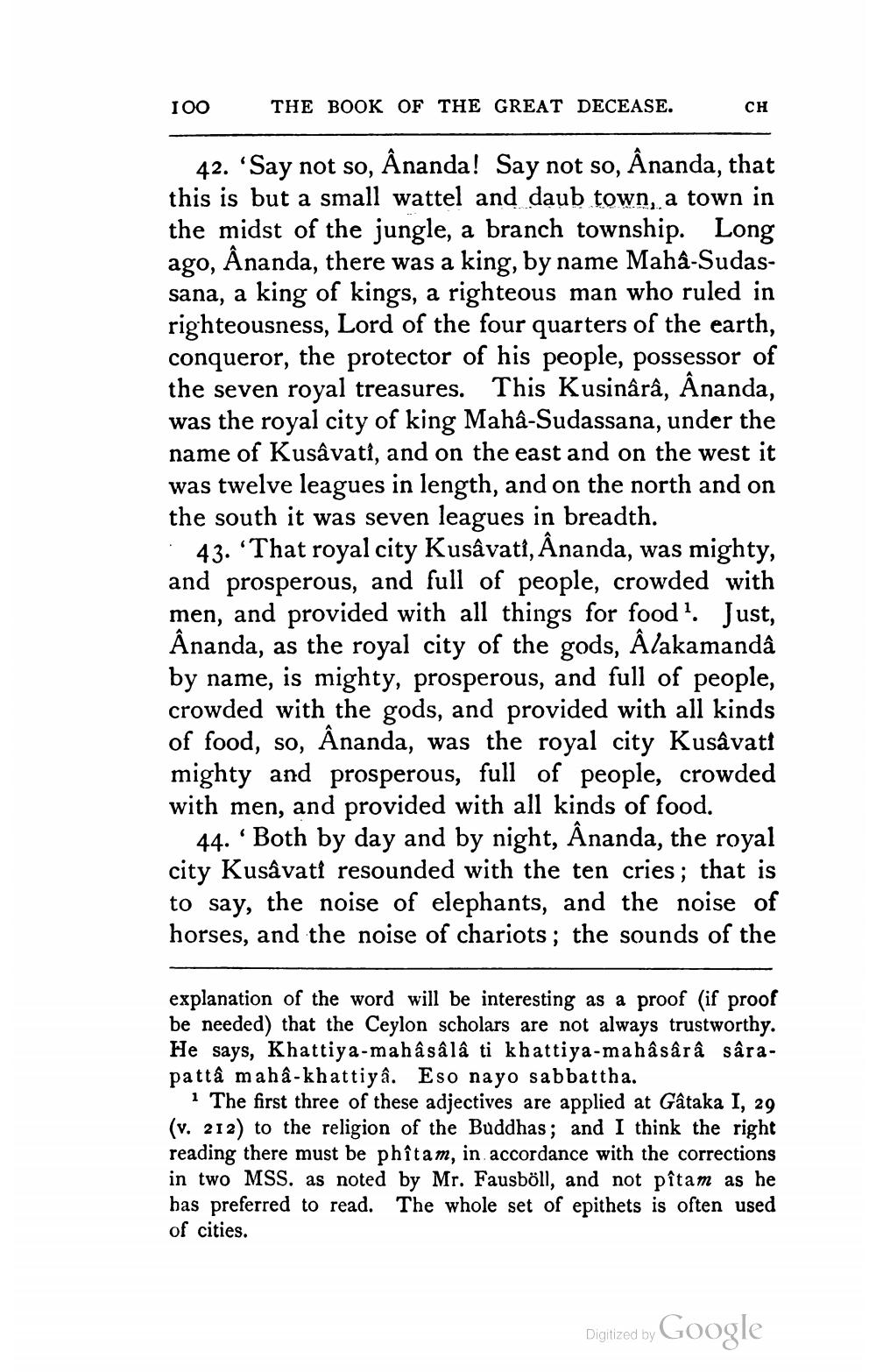________________
100
THE BOOK OF THE GREAT DECEASE.
CH
42. 'Say not so, Ânanda! Say not so, Ânanda, that this is but a small wattel and daub town, a town in the midst of the jungle, a branch township. Long ago, Ânanda, there was a king, by name Mahâ-Sudassana, a king of kings, a righteous man who ruled in righteousness, Lord of the four quarters of the earth, conqueror, the protector of his people, possessor of the seven royal treasures. This Kusinârâ, Ânanda, was the royal city of king Mahâ-Sudassana, under the name of Kusâvati, and on the east and on the west it was twelve leagues in length, and on the north and on the south it was seven leagues in breadth.
43. 'That royal city Kusâvati, Ânanda, was mighty, and prosperous, and full of people, crowded with men, and provided with all things for food'. Just, Ânanda, as the royal city of the gods, Âlakamandâ by name, is mighty, prosperous, and full of people, crowded with the gods, and provided with all kinds of food, so, Ânanda, was the royal city Kusâvatt mighty and prosperous, full of people, crowded with men, and provided with all kinds of food.
44. Both by day and by night, Ânanda, the royal city Kusâvati resounded with the ten cries; that is to say, the noise of elephants, and the noise of horses, and the noise of chariots; the sounds of the
explanation of the word will be interesting as a proof (if proof be needed) that the Ceylon scholars are not always trustworthy. He says, Khattiya-mahâsâlâ ti khattiya-mahâsârâ sârapattâ mahâ-khattiyâ. Eso nayo sabbattha.
1 The first three of these adjectives are applied at Gâtaka I, 29 (v. 212) to the religion of the Buddhas; and I think the right reading there must be phîtam, in accordance with the corrections in two MSS. as noted by Mr. Fausböll, and not pîtam as he has preferred to read. The whole set of epithets is often used of cities.
Digitized by
Google




